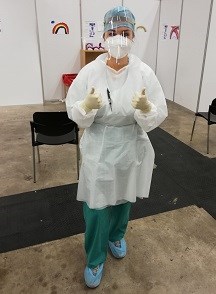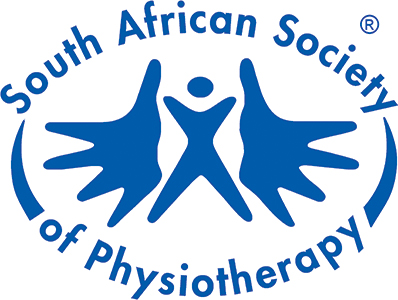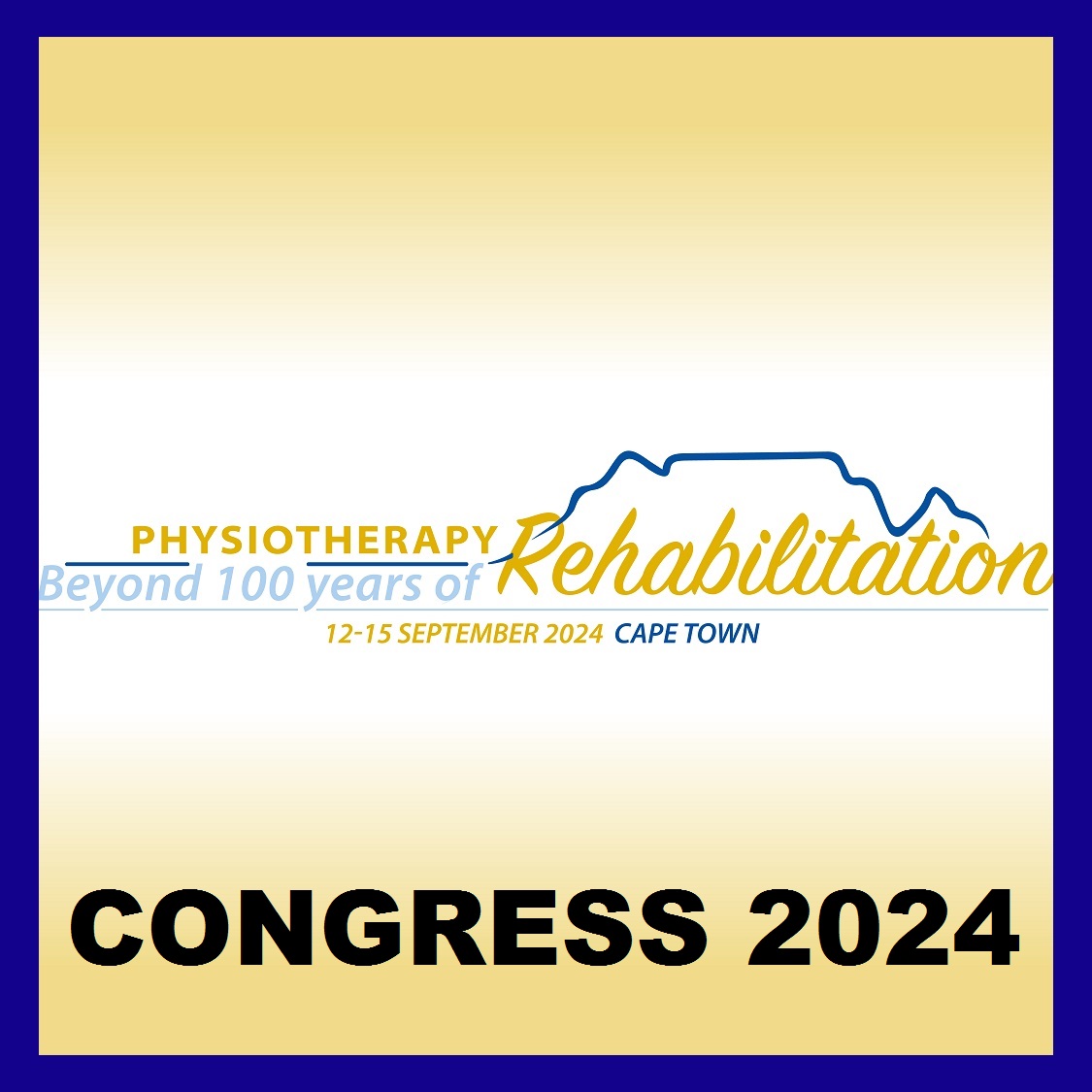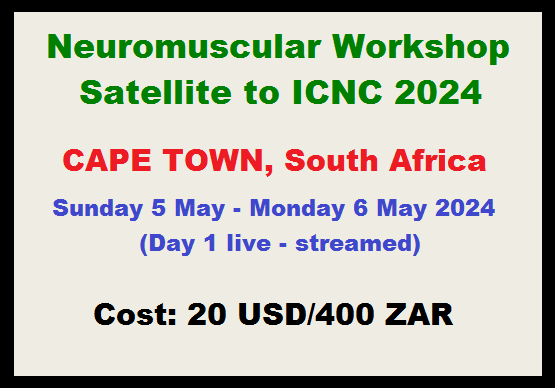
COVID-19: hope beyond hospital
Physiotherapists treat COVID-19 patients in hospital, but their care for patients in recovery is essential – and special
“I was in a ward full of older women, doing a one-on-one treatment with a patient,” says physiotherapist Helanie Pool, who is working in an Intermediate Care Facility (ICF) in Nelson Mandela Bay. “We were doing breathing exercises and arm and leg exercises, when I suddenly became aware that all the other ladies in the ward were doing the exercises along with her. I wasn’t doing a group class – they all just jumped right in and did it too! It was unbelievably special.”
The ICF, one of several in the city, is the final phase of formal recovery from COVID-19, a step-down from hospital. This facility can house 300 patients, all of whom have been on supplemental oxygen, some on high-flow oxygen or ventilation. “They are so utterly happy to be alive,” says Helanie. “They are grateful to see friendly, helpful faces.” Six of those friendly faces are physiotherapists, dressed in personal protective equipment which hampers physical movement and touch, but still able to do essential treatment that equips the patients for a return to home and normal life by focusing on the their cardiopulmonary (heart and lung) function and endurance, as well as mobility.
It is remarkable what can be achieved with the knowledge, skill, and experience physiotherapists have earned in four years’ of university study, followed by ongoing professional development over the course of their careers. The most important elements of all are flexibility – adapting to the circumstances, taking note of new evidence, adjusting treatment to use what’s available and practical – and a fierce commitment. “I had one patient, a sweet person, awake and aware but very, very ill; she had problems with multiple organs. She was not a candidate for ICU, so we did everything we could for her here,” says Helanie. “She responded very well; she’s gone home now.” Her daughter was so thankful that the medical staff were willing to “go the distance” for her mother, as Helanie puts it, that she’s sent them pictures of her back in her home environment and living a normal life.
“As taxing, difficult and uncomfortable an environment as this is,” says Helanie, “there’s a whole spectrum of positivity and camaraderie.”
COVID-19 rehabilitation – a long process
Physiotherapists are central to rehabilitation following COVID-19, a core part of the team treating recovering patients, not only in Intensive Care Units, wards and ICFs here and around the world, but also in the home environment. “A growing body of research indicates that something like ten percent of patients who have been sick with COVID-19 will have prolonged recoveries, anything from six weeks to… well, we don’t really know yet,” says Rogier van Bever Donker, President of the South African Society of Physiotherapists (SASP). “One Italian study showed that after 60 days, around 87% of patients still had at least one symptom, while other evidence indicates that some patients – the long-haulers, as they’re called – may still be battling symptoms and energy deficits after several months. People in whom symptoms persist will need exercise training, education, behavioural modification and guidance – all of which physiotherapists are well-equipped to provide.”
Research published at the end of July found that breathlessness, fatigue, weakness were among the most prevalent long-term symptoms. Project supervisor Dr Manoj Sivan, associate clinical professor at the University of Leeds, says: "The emerging evidence is that for some, the road to recovery may take months, and it is vital specialist rehabilitation is on hand to support them.”
This year, National Physiotherapy BackWeek will centre the role of physiotherapists in getting COVID-19 patients back to optimal function. “It’s exciting to be part of this global journey, and to play our part in getting patients moving again, in improving their exercise tolerance and cardiopulmonary function,” says Helanie.
National Physiotherapy BackWeek takes place on 7-13 September 2020.
Back






